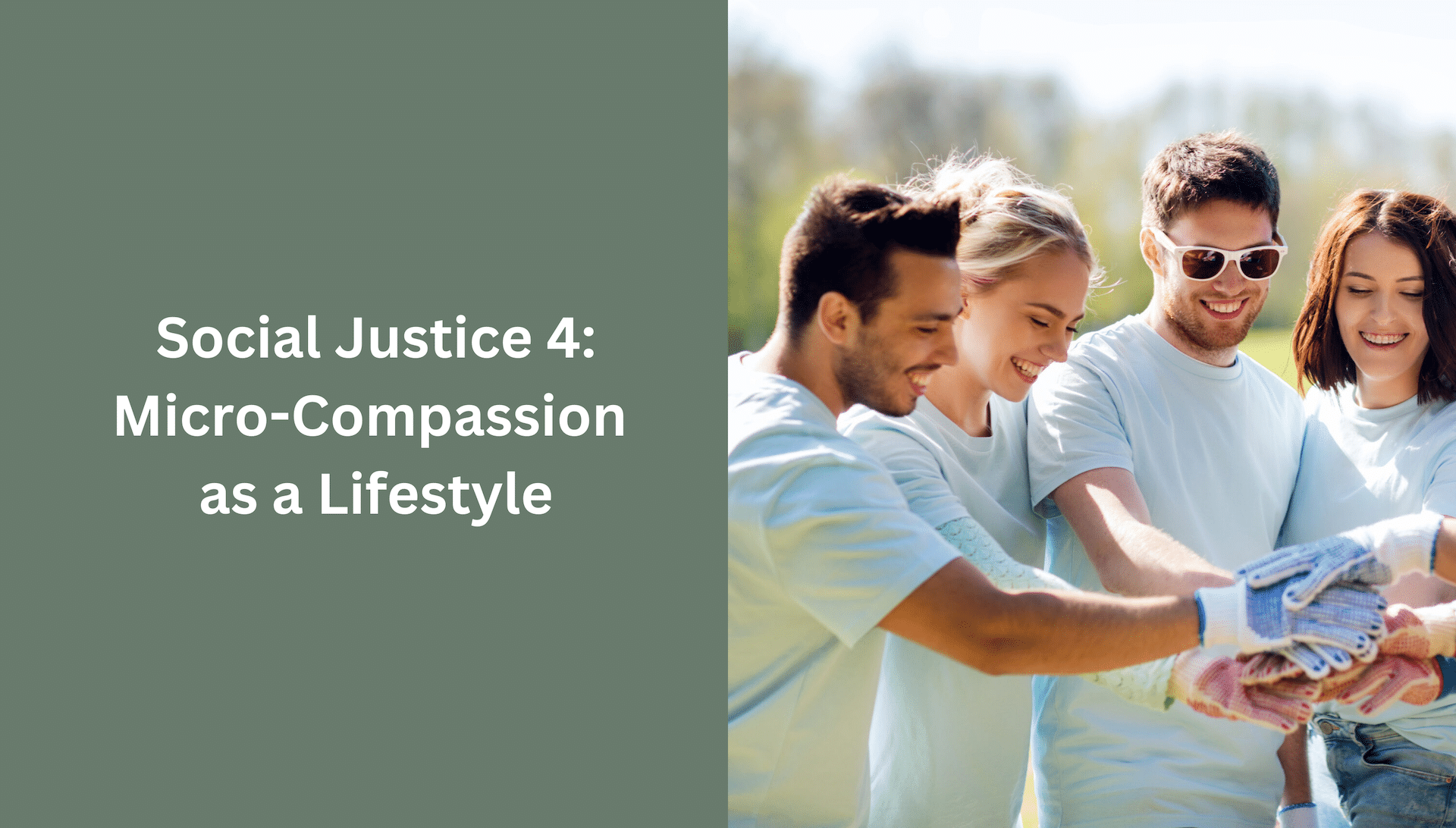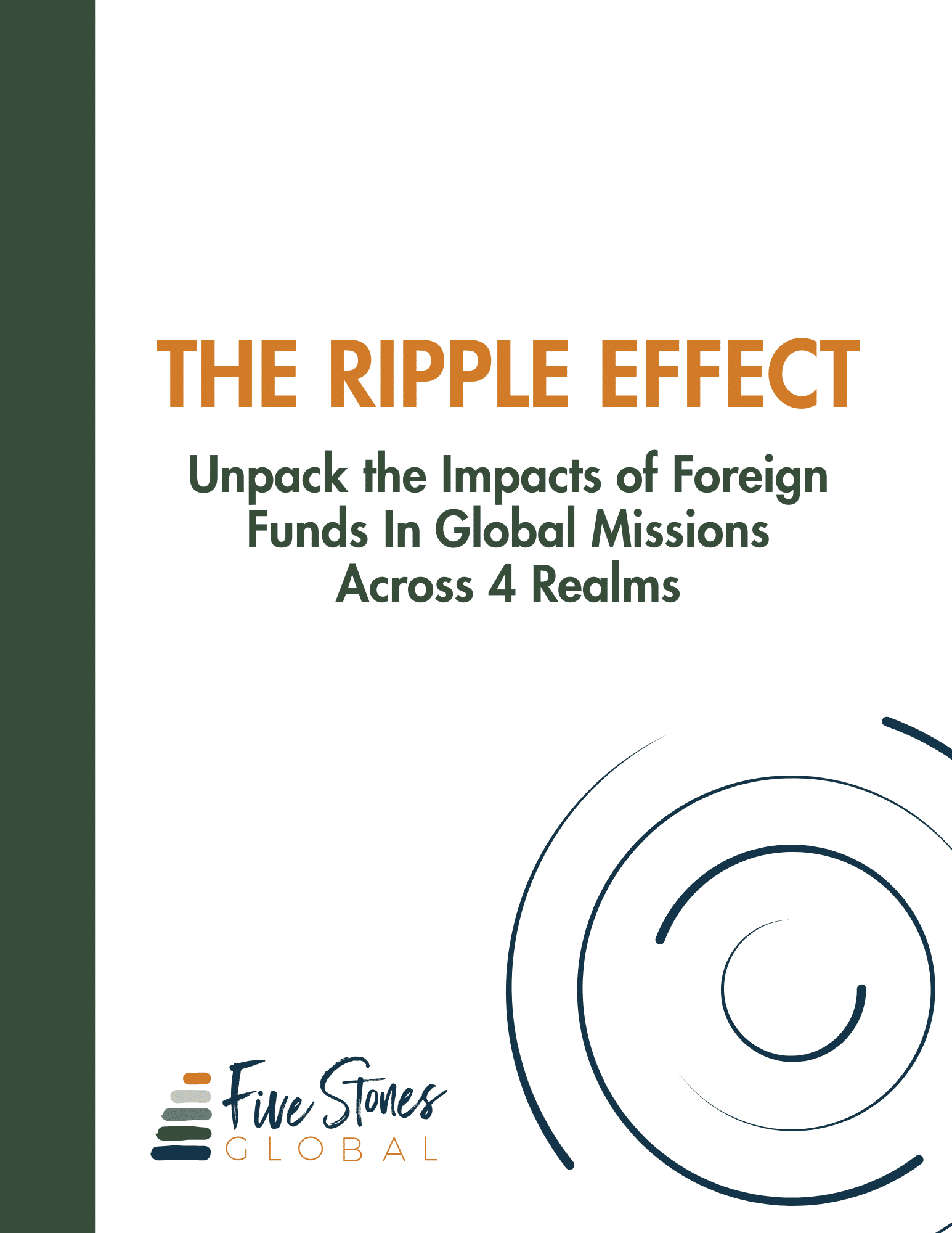By Jean Johnson
Macro-compassion projects from the West tend to swallow up micro-compassion lifestyles for the Rest. Compassion in the hands of the few on behalf of the many is extremely limiting. How can we help to reverse this syndrome and make compassion every Christ follower’s natural rhythm of life in their micro-spaces, thus becoming a global movement?
“Here come the T-shirts,” states a man with a mocking tone. He lives with his wife and children in the heart of a major US city. The people he refers to as “T-shirts” are groups of well-meaning church people from the suburbs — often one group after another —who come to his neighborhood to do something “to them” or “for them,” mostly in the form of handouts and free services such as kids’ carnivals, haircuts, and giveaways.
Dave and Janice leave their own neighborhood every first Saturday of the month at 8:30 a.m., wearing matching blue T-shirts with their church logo. They drive by their neighbors, who include the lonely, hungry, widowed, orphaned, depressed, jobless, forgotten, and spiritually dead, to participate in an outreach program to serve vulnerable people in neighborhoods where they do not live. They have little to no experience with the people they will meet and serve.
Dave and Janice’s ability to serve, and their team’s compassionate nature and activities, are dependent on their church’s ability to recruit, organize, and create weekend activities. From time to time this is done in partnership with professional nonprofit organizations. At times they hold activities for the masses without ever meeting those they are serving. At other times, they hold events or do projects in ways that do not lend themselves to sustaining and developing relationships due to cultural barriers and travel distance. On occasion, they invite people to their church for an annual benevolent event or ongoing project with the hopes that those people might attend their church.
I refer to this kind of benevolence as macro-compassion. Macro-compassion takes place at a macro-level with macro-forms. By way of illustration, clergy, pastoral leaders, or professionals conceptualize and organize acts of service, love, and justice in formats that require lots of organizational skills, financial capital, and social technology. Then they proceed to rally their church members around these efforts that are rooted in a mindset that says “come to us” or “go to them and leave.”
As North Americans, we become accustomed to and dependent on professionals and organized programs to guide our displays of justice, love, and service. And the recipients of our macro, project-oriented displays of service often feel like they are the “project.”
Because our experience is limited to clergy and professionals driving and organizing our acts of love and justice in fairly organized ways, such as church-based food shelters and inner-city carnivals, we struggle to practice incarnational acts of love and justice as a lifestyle within our own social spaces in ways that are reproducible for the average person — in micro, not macro, ways.
Our North American macro-experiences lead to a closed imagination — the inability to conceive and facilitate love, compassion, and justice from a lens other than our own church experiences and worldview. When we head over to other countries — places with vast economic, political, social, and worldview complexities — we launch and model macro-style compassion and justice. For example, we are moved by a plight, and we instantly start thinking in project terms and macro-models. What kind of organization can we start to address this need? What is our mission statement, and who can we mobilize in-country to execute the mission? How will we get financial backing to make this happen for years to come? Before we know it, we are well on our way to top-down, macro-compassion — all adding up to a model that is heavily dependent on foreign aid, heroes from the outside, and salaried cultural insiders who are typically paid with foreign funding.
If we want to unlock a volunteer movement of tangible love and justice in cities, towns, and villages in other parts of the world, I believe two significant shifts need to happen. First, we need fresh incarnational experiences and approaches to compassion and justice in our own Jerusalem (our own communities). Second, as an outflow of those new approaches, we will be better equipped to imagine and facilitate compassion in a way that is doable and reproducible when we go to Judea, Samaria, and the ends of the earth.
Call me naïve, but if every Jesus-following family, along with their Jesus-following neighbors, were taught to team up and love their neighbors in the spaces where they work and live as a natural rhythm of life, we would experience an organic movement that cares for the majority of the lonely, jobless, widowed, orphaned, and spiritually anemic.
I love the word image J.R. Woodward and Dan White Jr. give us in this regard:
In The Message John 1:14 says, “The Word became flesh and blood, and moved into the neighborhood.” God came close in Jesus, who moved into a neighborhood for thirty years. This is profound. How might we move deep into our neighborhoods? Disciples must see the neighborhood as a garden to toil, and this of course takes toil. God is not bound up in buildings; he is already moving along our streets. How do we call the church to care for the spaces we make home? How do we ignite disciples to move toward their actual neighbors? Make no mistake this is a big shift. But it is essential.[1]
I often wonder why Jesus said to “love your neighbor as yourself” (Mark 12:31). I cannot shed light on this from the Greek or through a sophisticated theological point of view, but allow me to explore this with my simple mind. Maybe Jesus broke love and compassion down into manageable increments for a reason. Loving my neighbor seems much more doable than loving the masses who live far from me in proximity, in distant countries or even three cities away.
Jesus goes on to say, “love . . . as yourself.” Loving people to the degree that I love myself is reachable and reproducible as well. I feed myself, I clothe myself, I affirm myself, I console myself, I teach myself, and so forth. If I stretch just a little, I could do that for other people. If I team up with others in my social spaces, we could stretch our acts of love and justice even further. If we build in reciprocity — the helped becoming the helpers — we could do even more. And if we develop a burden for a particular community, we could re-neighbor ourselves and become a “love your neighbor as yourself” person within that community.
Continuing with J.R. Woodward and Dan White Jr., we can practice missional-incarnational lifestyles and rhythms by moving from “being for the neighborhood and with the neighborhood to being of the neighborhood and in the neighborhood.”[2]
It is my belief and experience that loving our actual neighbors is a lost art in the church. We need our leaders to teach us and disciple us in how to see our neighborhood as our garden and how to till it, rather than becoming dependent and even paralyzed by macro-compassion. Then maybe we can send people with micro-experience to the ends of the earth — people who can in turn motivate others to conceptualize their villages and neighborhoods as gardens to till, based on their local initiative, local creativity, local connectivity, local resources, and local interdependence.
Being of the neighborhood and in the neighborhood is very different from sweeping in as heroes in cross-cultural neighborhoods across the sea with top-down macro-approaches. Just think: we could serve as voices of invitation — rather than as pocket books and bosses — inviting people to use their imaginations as to how to obey Jesus’s command as part of their rule and rhythm of life.
A Cambodian family may not be able to build an orphanage, but they might be able to provide an orphan with lunch on a daily basis. And if they team up with a couple other families and combine their local resources and skills, they might be able to meet an orphan’s basic needs. And if every Christ-following family were to lean into an incarnational approach to life, they might be able to serve a majority of afflicted people.
“In Christ, God is local. His passions and plans for people become concrete when they are localized.”[3]
Read Social Justice Blog 1-3
https://fivestonesglobal.org/social-justice-1-god-designed-social-justice-dont-you-dare-hit-her/
https://fivestonesglobal.org/social-justice-2-how-does-spiritual-justice-play-out/
Five Stones Global is a mission training and coaching organization that exists for the sake of building a culture of local dignity, sustainability, and multiplication in Great Commission efforts.
[1] J.R. Woodward and Dan White Jr., The Church As Movement: Starting and Sustaining Missional-Incarnational Communities (Downers Grove, IL: InterVarsity Press, 2016), 191.
[2] Ibid, 197.
[3] Ibid, 203.


